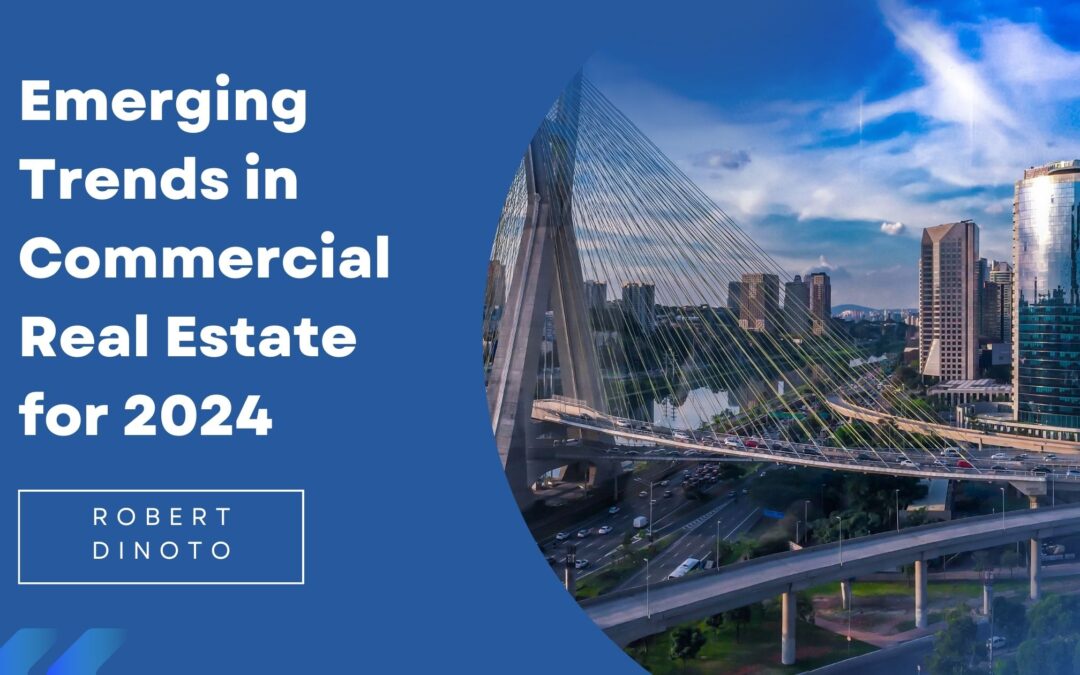As we step into 2024, the commercial real estate (CRE) landscape is experiencing significant shifts driven by technological advancements, changing work patterns, and evolving market demands. Staying ahead of these trends is crucial for investors, developers, and stakeholders to make informed decisions and capitalize on emerging opportunities.
One of the most notable trends in commercial real estate for 2024 is the increased focus on sustainability and green building practices. As climate change continues to be a pressing global issue, there is a growing demand for eco-friendly buildings that reduce carbon footprints and promote energy efficiency. Developers are incorporating sustainable materials, renewable energy sources, and advanced waste management systems into their projects. Additionally, investors are increasingly considering Environmental, Social, and Governance (ESG) criteria when making decisions, further driving the shift toward sustainable real estate.
Another significant trend is the rise of smart buildings. Advances in technology have enabled the integration of Internet of Things (IoT) devices, artificial intelligence (AI), and data analytics into building management systems. These smart buildings offer enhanced operational efficiency, improved occupant comfort, and lower maintenance costs. For example, automated lighting and HVAC systems can adjust based on occupancy and usage patterns, optimizing energy consumption. The ability to monitor and manage building systems remotely is also a significant advantage for property managers.
Flexibility in workspace design is becoming increasingly important. The traditional office layout is being reimagined to accommodate hybrid work models and changing employee expectations. Flexible office spaces that can be easily reconfigured to meet the needs of different teams and activities are gaining popularity. This trend is driven by the growing demand for co-working spaces and the need for companies to adapt to fluctuating workforce sizes. Multifunctional areas, such as collaboration zones and wellness spaces, are becoming standard features in modern office buildings.
The demand for industrial and logistics real estate continues to soar, fueled by the rapid growth of e-commerce. Distribution centers, warehouses, and last-mile delivery hubs are in high demand as online retailers seek to optimize their supply chains and meet customer expectations for fast and reliable deliveries. Developers are focusing on creating strategically located facilities with advanced automation and robotics to streamline operations and increase efficiency.
Urbanization and mixed-use developments are also shaping the future of commercial real estate. As cities grow and evolve, there is a rising demand for mixed-use properties that combine residential, commercial, and recreational spaces. These developments create vibrant, walkable communities that offer convenience and enhance the quality of life for residents. The integration of retail, dining, and entertainment options within mixed-use projects attracts tenants and visitors, driving economic growth and revitalizing urban areas.
The adoption of blockchain technology and digital transactions is transforming the way real estate deals are conducted. Blockchain offers increased transparency, security, and efficiency in property transactions by providing a decentralized and immutable ledger of all transactions. Smart contracts, which automatically execute and enforce contract terms, are streamlining the buying, selling, and leasing processes. This technology reduces the need for intermediaries, lowers transaction costs, and accelerates the completion of deals.
The importance of health and wellness in commercial real estate design has been amplified by the COVID-19 pandemic. Tenants are now prioritizing buildings that offer enhanced indoor air quality, access to natural light, and amenities that promote physical and mental well-being. Developers are incorporating features such as green spaces, fitness centers, and touchless technologies to create healthier and safer environments.
In conclusion, the commercial real estate sector is experiencing transformative trends in 2024, driven by sustainability, technology, flexibility, e-commerce growth, urbanization, blockchain, and health considerations. Staying attuned to these trends will enable industry stakeholders to navigate the evolving landscape and seize opportunities for growth and innovation.

